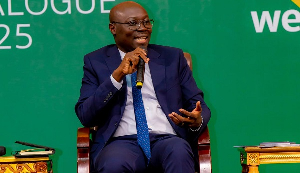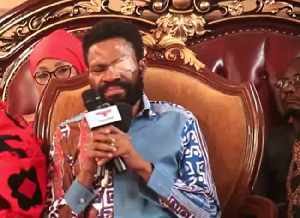Hearing into the alleged abuse of power and corruption scandals that have rocked the Electoral Commission (EC) will begin today, Kasapafmonline.com has gathered.
Chairperson of the EC, Charlotte Osei, and two of her deputies, Georgina Opoku-Amankwah, who is in charge of Corporate Services, and Amadu Sulley, in charge of Operations, are expected to appear before the five-member committee chaired by a Supreme Court Judge for questioning relating to separate petitions filed against them.
The appearance of the trio before the committee follows the completion of preliminary investigations into their alleged conduct of abuse of power and corruption.
In August, 2017, the three EC bosses were directed by the Chief Justice to file their official responses to the allegations levelled against them in the various petitions.
It is not clear who among the three EC bosses will appear first before the Committee.
Deep throat sources at the corridors of the Electoral Commission say all the three are poised to defending themselves when they appear before the committee on charges of corruption and abuse of power levelled against them.
Several infractions in the award of contracts at the EC prior to the 2016 general elections is expected to feature prominently during the trial, sources familiar with how the trial will proceed told Kasapafmonline.com.
First Petition
The three EC bosses have been at loggerheads for sometime, a situation many believe, is jeopardizing the operations of the EC.
The trial by the committee, was therefore, was spurred by a petition sent to the Presidency by Lawyer Maxwell Opoku-Agyemang, who was acting on behalf of some unnamed staff of the Commission, who had sought to trigger impeachment proceedings against Madam Charlotte Osei.
In the petition, Charlotte Osei was accused among other things, spending GH¢3.9million to partition her office, receipt of a bulletproof Toyota Land Cruiser from the John Mahama-led National Democratic Congress government, and spending about US$14million for district offices when the Public Procurement Authority (PPA) had authorized her to use only US$7.5million.
Second Petition
Later, another petition was again filed against Charlotte Osei by Lawyer Douglas Seidu on grounds of breach of the Public Procurement Act, 2003 (Act 633) as amended, gross financial mismanagement as well as conflict of interest.
Lawyer Seidu alleged that Charlotte Osei put herself in a conflict of interest situation when she awarded a contract to Aerovote Security Printing (Ghana) Limited to print the pink sheets used for the 2016 general elections.
Lawyer Seidu argued that Charlotte Osei has strong business links with the Director of Aerovote and that the EC Chairperson had long arranged the deal even before the procurement process opened.
He further claimed that Charlotte Osei ‘Unilaterally’ awarded contracts worth GH¢249,018,895.03 and US$71,406,388.80 in breach of procurement processes and also awarded various contracts, including the printing of letterheads and a logo for the Commission which amounted to gross financial mismanagement.
Fight Back
But the EC boss through her lawyer, Thaddeus Sory hit back, insisting that she had not been corrupt or abused her office.
Charlotte Osei then accused her two deputies, Georgina Opoku-Amankwah and Amadu Sulley, of deliberately scheming to frustrate her stay in office.
She also accused Georgina Opoku-Amankwah of signing contracts worth US$40million without her knowledge and authorization between May and September 2015.
Amadu Sulley was also not spared either as she accused him of illegally transferring votes in the run up to the 2016 general elections.
Further to that, Amadu Sulley, allegedly pocketed huge amounts of money from some political parties.
Counter Petition
Following her allegations, another group whose identity is not known sent a counter petition to the President to investigate her two deputies for allegedly abusing their offices and corruption.
No Wrongdoing
Both Amadu Sulley and Georgina Opoku-Amankwah denied any wrongdoing.
They accused Charlotte Osei of being the problem at the Electoral Commission.
General News of Monday, 11 December 2017
Source: kasapafmonline.com













